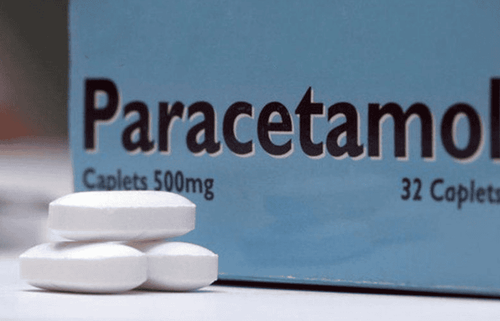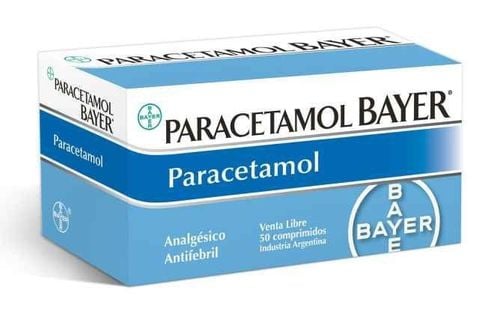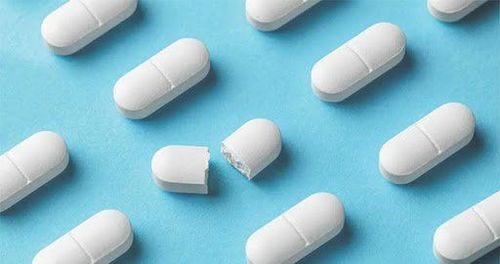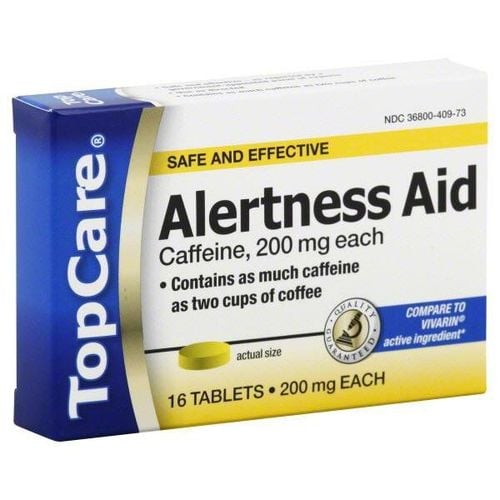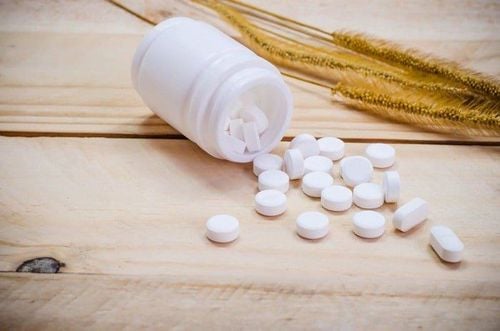This is an automatically translated article.
Colocol Extra is an effective pain reliever and fever reducer thanks to the combination of two main ingredients, Paracetamol and Caffeine, which is often indicated for the treatment of mild and moderate pain. Colocol pain relievers are not used properly, in the right dose, ... can cause some unwanted effects during use. The following article helps you get more information needed to use the drug appropriately and limit the risks when taking it.
1. What is Colocol?
Colocol Extra is an effective pain reliever-fever reducer thanks to the combination of two main ingredients, Paracetamol and Caffeine:
Paracetamol (content 500mg): inhibits the activity of Cyclooxygenase enzyme at the synthesis of Prostaglandin, has an effect reduce pain, reduce fever. In addition, paracetamol also acts on the hypothalamus, helping to dilate blood vessels and increase peripheral blood flow. Caffeine (content 65 mg): has a mild stimulant effect on the central nervous system. In addition, there are other excipients such as: stearic acid, Avicel PH102, Titanium Dioxide, PVP, Hydroxypropyl methylcellulose, Talc, PEG 6000...
2. What effect does Colocol extra have?
What does Colocol extra do? Specifically, the effects of Colocol extra are as follows:
Pain relief from mild to moderate: Headache, migraine, sore throat, toothache, pain after tooth extraction or after dental procedures, muscle pain, pain due to cold or flu, fever after vaccination, dysmenorrhea,... Reduce fever in cases of contraindications to NSAIDs, aspirin.
3. Dosage and how to use Colocol extra
Colocol is used orally, the dose depends on the pain condition and prescribed by the doctor. The dose below is for reference only:
Adults and children ≥12 years old: dose 1-2 tablets/time x 2-4 times/day, 4-6 hours apart. Children from 7-12 years old: 1 tablet/time, 4-6 hours apart. Children <6 years old: do not use this dosage form. Do not exceed this prescribed dose, but use it exactly as prescribed by your doctor or pharmacist.
4. Contraindications to the use of Colocol extra
Colocol extra is contraindicated in the following subjects:
Hypersensitivity to the ingredients in Colocol extra. Glucose-6-phosphatdehydrogenase deficiency. Coronary heart failure, tachycardia, myocardial infarction, extrasystoles.
5. Special warnings and precautions for use
Care should be taken when administering paracetamol to patients with severe hepatic or renal impairment. Patients with alcoholic liver disease without cirrhosis are at higher risk of overdose. Excessive caffeine intake (e.g. coffee, tea, chocolate and some carbonated beverages) should be avoided while taking this product. Patients should consult a doctor if the headache persists. It is recommended that preparations containing paracetamol should not be used concurrently. This product contains aspartame, which is a phenylalanine that may be harmful to people with phenylketonuria.
6. Drug interactions
Increased absorption of paracetamol: When taking metoclopramide or domperidone. Reduced absorption of paracetamol: when taking colestyramine. With prolonged regular daily use of paracetamol: increased anticoagulant effect of warfarin and coumarins increases the risk of bleeding. The effect is not significant with occasional dosing.
7. Side effects of the drug Colocol extra
At therapeutic doses, Colocol Extra is well tolerated. Side effects of the drug are uncommon, usually mild and transient:
Gastrointestinal disturbances, rash and allergic reactions. May decrease platelets, neutrophils. Paracetamol has the advantage of not causing stomach irritation like aspirin and other NSAIDs. Therefore, paracetamol is widely used in clinical practice. When using high doses of caffeine (<600mg/day) symptoms of restlessness, anxiety and sleep disturbances appear.
8. Overdose and treatment
8.1. Paracetamol Adults taking >10 g paracetamol: liver damage.
Take >5 g paracetamol and have the following risk factors: cause liver damage.
Risk factors:
Being on long-term treatment with carbamazepine, phenobarbitone, phenytoin, primidone, rifampicin, St John's Wort or other drugs that cause liver enzymes. Patient is an alcoholic. Patients with eating disorders, cystic fibrosis, HIV infection, hunger, wasting. Symptoms:
During the first 24 hours the symptoms are nausea, vomiting, pallor, loss of appetite and abdominal pain. Between 12-24 hours after ingestion liver damage may become apparent. Abnormalities of metabolic acidosis and glucose metabolism may occur. In severe poisoning, liver failure can progress to hypoglycemia, hemorrhage, encephalopathy, cerebral edema, and death. Acute renal failure with acute tubular necrosis, hematuria, and proteinuria. Pancreatitis and cardiac arrhythmias have been reported. Treatment:
Immediate treatment to manage paracetamol overdose. Although there are no significant initial symptoms, the patient still requires urgent referral to a hospital for immediate medical care.
Treatment with activated charcoal should be considered if an overdose has been taken within 1 hour. After 4 hours or later, measure the plasma concentration of paracetamol.
Treatment with N-acetylcysteine can be used up to 24 hours after ingestion of paracetamol, however, the maximum protective effect is achieved up to 8 hours after oral administration. After this time, the effectiveness of the antidote decreases sharply. If necessary, intravenous N-acetylcysteine should be administered, in accordance with the indicated dosing schedule.
Where there is no problem with vomiting, oral methionine is a suitable alternative for medically deficient areas.
8.2. Caffeine Symptoms:
Anxiety, restlessness, insomnia, euphoria, diuresis, flushing, muscle twitching, GI disturbance, tachycardia or arrhythmia. Treatment
Use of activated charcoal may be beneficial after an overdose within an hour, possibly within 4 hours of an overdose. The CNS effects of overdose can be treated with intravenous sedation. Colocol extra is an effective pain reliever and fever reducer thanks to the combination of two main ingredients, Paracetamol and Caffeine, commonly indicated for the treatment of mild and moderate pain. To ensure the effectiveness of treatment and avoid side effects, users need to strictly follow the instructions of the doctor, professional pharmacist.
Follow Vinmec International General Hospital website to get more health, nutrition and beauty information to protect the health of yourself and your loved ones in your family.
Please dial HOTLINE for more information or register for an appointment HERE. Download MyVinmec app to make appointments faster and to manage your bookings easily.





